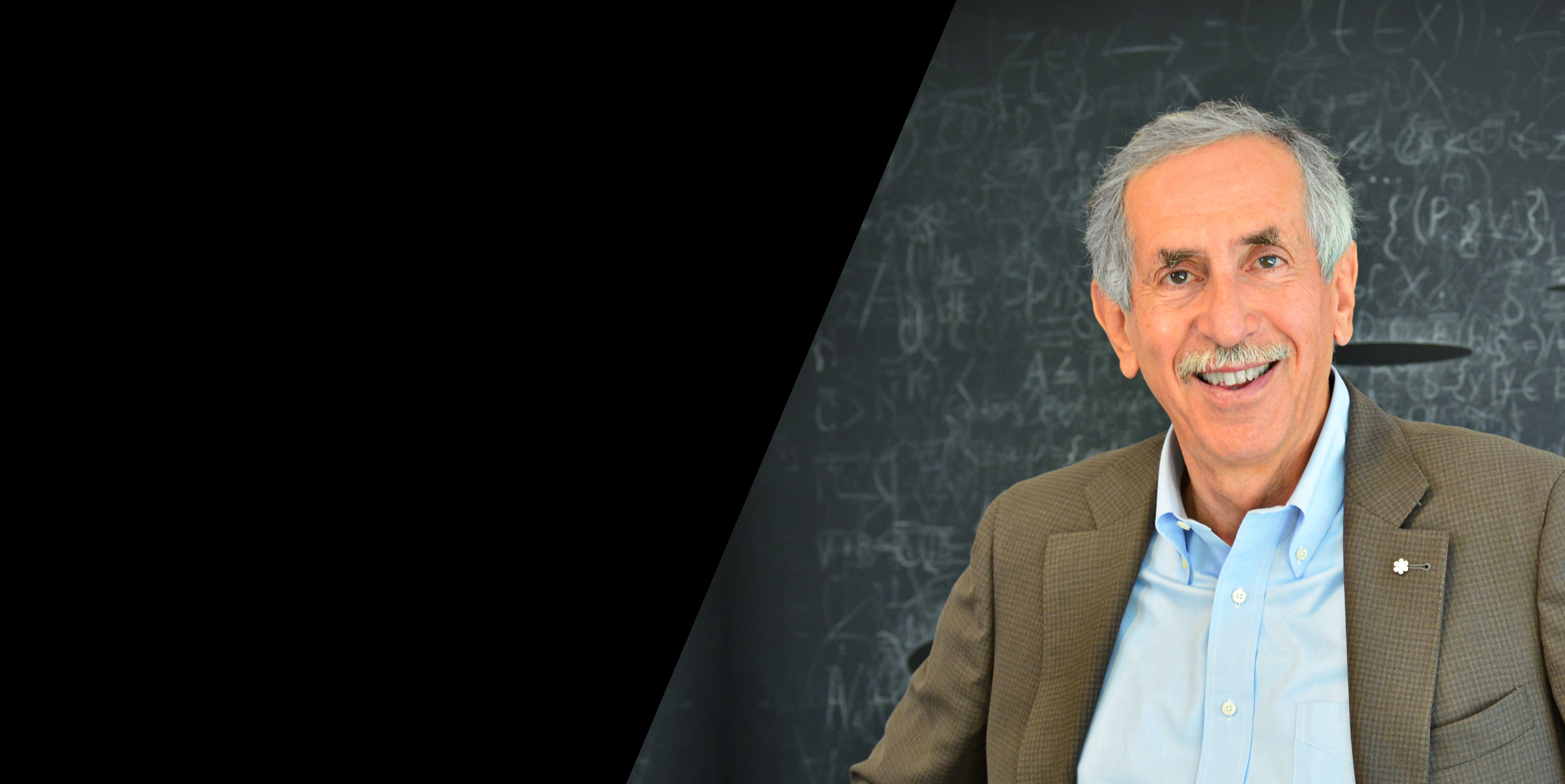By: Alan Bernstein
1 Apr, 2013

Over three decades ago, CIFAR’s founders put forward a bold vision: to create a virtual institute of advanced research that would connect the world’s best investigators across disciplines and geography to work together on exciting and timely questions of importance for the world.
The goals were threefold: first, to strengthen Canadian science and scholarship by connecting Canada’s best with the world’s best; second, to stimulate Canadian innovation by supporting some of Canada’s very best investigators; and third, to address important challenges facing Canada and the world and to engage Canadians in these important endeavours.
Thirty years later, that bold vision has become a reality. Over the last few weeks alone, members of CIFAR’s family of close to 400 Fellows, Senior Fellows and Advisors have been featured in major stories in the media, reporting a significant advance in astrophysics, Canadian innovation supported by a major investment from Google, Inc., and an important public discussion on the determinants of economic growth.
Senior Fellows Dick Bond and Barth Netterfield (University of Toronto and the Canadian Institute for Theoretical Astrophysics), Associate Fellow George Efstathiou (Cambridge) and Advisor Simon White (Max Planck Institute) were part of an international team reporting on new insights into our understanding of the structure and age of the universe.
Geoff Hinton (University of Toronto), Senior Fellow and Director of CIFAR’s Learning in Machines & Brains program (formerly known as Neural Computation & Adaptive Perception)was successful in attracting significant investments from Google for his spin-off company DNNresearch.
Senior Fellow Daron Acemoglu (MIT), co-author of Why Nations Fail with Senior Fellow James Robinson (Harvard)—both members of CIFAR’s Institutions, Organizations & Growth program—headlined a CIFAR Knowledge Circle event attended by close to 300 people, appeared on the Lang O’Leary Report on CBC TV, and met with members of the Globe and Mail editorial board.
Together, these stories illustrate CIFAR’s uniquely global reach, our profound belief in excellence, and the intimate connection between excellence in research and impact that can change the world.
Since becoming president of CIFAR last May, I have been focusing on how best to position CIFAR for its next 30 years. As I note in a commentary published in Nature on April 4, globalization and the profound changes in the pace and scale of research demand that we explore different institutional and funding models.
At CIFAR, our response has been to develop a refreshed vision —CIFAR 2.0—that builds on our past 30 years of accomplishments while recognizing the need to adapt to the changing context in which research is now done.
CIFAR 2.0 has five essential elements: broaden our global reach to align with the rapid growth of nodes of research excellence beyond North America and western Europe; align with others by engaging in partnerships and collaborations; nurture the world’s most promising next generation of researchers; turn research into action; and develop an outward-looking, risk-taking, outcomes-driven organizational culture.
The launch of CIFAR’s first Global Call for Ideas in April touches on all aspects of CIFAR 2.0: we hope to engage outstanding researchers here in Canada and internationally who are not yet part of the CIFAR family, fund new programs that have the potential to impact on the challenges facing humanity, and to secure new partnerships to support some of the exciting new ideas that will come forward. We have also expanded the CIFAR Global Academy, now based at The Banff Centre, and we have ambitious plans to strengthen the range of programs that we can offer to emerging young researchers.
The world has changed profoundly since CIFAR’s founders first conceived of this unique organization. Our aspirations for CIFAR, expressed in CIFAR 2.0, is to build on the formidable legacy of the past 30 years by becoming a truly global research organization, addressing the many global challenges facing humanity today through excellence in research.